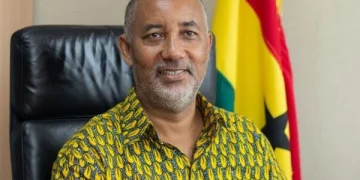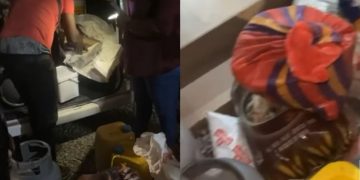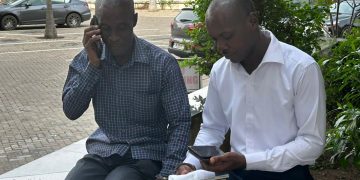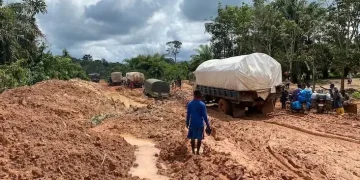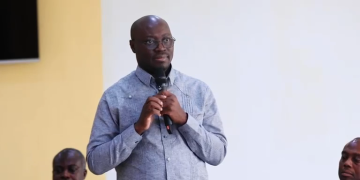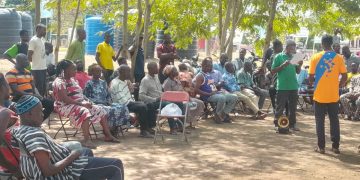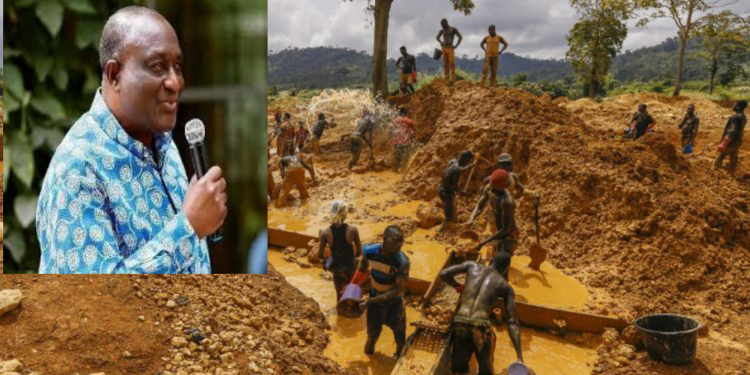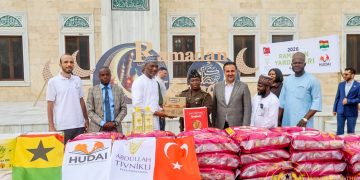Alan Kwadwo Kyerematen, leader of the Movement for Change and the Alliance for Revolutionary Change, presented a comprehensive 10-point policy blueprint aimed at addressing the escalating crisis of illegal small-scale mining, popularly known as ‘Galamsey’.
His plan, he stated, was a forward-looking approach to eradicate illegal mining while providing sustainable alternatives to the affected communities.
At a press conference today, Alan Kyerematen called for an immediate one-year ban on all small-scale and community mining activities, both legal and illegal. “This ban is necessary to allow for a full restoration of our river bodies and degraded lands, which have suffered severe environmental destruction due to illegal mining,” he remarked.
As part of his 10-point plan, Mr. Kyerematen proposed the demobilization and inventory of all mining equipment currently in use, which would be overseen by the military’s 48 Engineer Regiment.
He emphasized that the restoration of river bodies and land sites would be led by the Water Resources Commission and the Forestry Commission within the ban period.
Another key component of the plan is the cancellation of all small-scale and community mining licenses issued within the last 15 years. Kyerematen said this would be followed by a comprehensive audit to scrutinize the legality of the issued licenses, focusing on the issuing authorities and compliance with regulatory standards.
Kyerematen’s plan also prioritizes alternative livelihoods for young people involved in illegal mining activities. He proposed deploying them to participate in reforestation projects on degraded lands during the ban period. In addition, he outlined a “Youth in Responsible Mining Initiative,” which would support former ‘galamsey’ workers in establishing government-backed youth-owned mining companies.
These companies would be provided with seed funding, machinery, and management support to operate legally and sustainably.
“The government will ensure these youth-owned companies are provided with the necessary tools and licenses to engage in environmentally responsible mining practices,” Kyerematen explained.
The blueprint also includes the establishment of Citizens Mining Protection Rights Groups in mining communities to act as watchdogs for responsible mining practices.
Furthermore, Kyerematen called for new legislation to impose a permanent ban on mining in river bodies and forest reserves, with violators facing life imprisonment under stricter sanctions.
Kyerematen’s plan goes beyond immediate measures, presenting longer-term strategies within his Great Transformational Plan. These include a comprehensive review of Ghana’s natural resource management laws, consolidation of overlapping regulatory bodies, and the introduction of legislation to mandate 60% value addition to raw materials by 2030.
He also called for amendments to the Constitution to make traditional authorities co-trustees of Ghana’s mineral resources and proposed the development of the Western Region as a mineral processing hub for West Africa.
In his closing remarks, Kyerematen made a heartfelt appeal to the Attorney General, urging him to protect the legal rights of the young people arrested for protesting against *galamsey*. He called on the Attorney General to file a *nolle prosequi* to terminate the criminal case against them or, at the very least, not oppose their bail applications.
To the young people of Ghana, particularly those arrested, Kyerematen declared: “You are the heroes of our time. Do not be dismayed; there is light at the end of the tunnel. Together, we will win, and Ghana will rise again.”
The press conference marked a significant moment in the ongoing debate over illegal mining in Ghana, with Kyerematen positioning himself as a leading advocate for both environmental sustainability and youth empowerment in the fight against Galamsey.
Source: www.kumasimail.com


